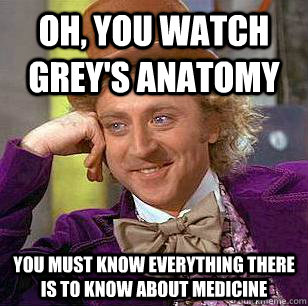In this video, Sir Ken Robinson suggests that we are born as artists, and we are “educated” out of creativity. He also comments on the hierarchy of subjects in schools; how writing and arithmetics are seen as the most important, and arts is seen as the least important. Even within arts, visual arts and music are seen as more important than dance or drama.
It’s an interesting concept, and I agree completely. That mainstream education puts a heavy focus on the 3 R’s (reading, writing and arithmetic) rather than subjects that require a creative input, such as vis-comm, arts, drama and even home-ec.
I know this was a serious issue in my high school. When I was in year 11, we had a big group of students leave to pursue more specialised fields of study including cheerleading, dance, electrical, theatre studies, and music production/composition. When I was still in primary school, my high school stood as one of the best in the state, in terms of achieving the highest VCE results. But now, my old school doesn’t even make the top 50. It’s probably because there has been a huge pressure from students to cater to the creative needs of students. With shows like “Glee” and “MasterChef” that encourage creativity, students are more inclined to explore and discover the arts.
I remember vividly in year 8, when choosing my electives for year 9, I so desperately wanted to pick Media, Textiles and Visual Communication as my electives, but my parents strongly suggested I pick commerce, or advanced maths. However, I ended up compromising. Over the course of years 9 and 10, I studied advanced english, maths and science, media, commercial design, food technology, commerce, and LOTE. Of course, I understood the importance of my english, maths and science, as I needed to get the foundation right if i wanted to do well in VCE, so i worked hard on them, and enjoyed my creative subjects as a “hobby”. But that’s the thing… I focused on my english and maths because apparently in life, that’s what counts. Notice how maths subjects such as Methods and Specialist scale up when you get your ATAR? and how any of the Arts and Humanities scale down?
We are brought up to believe that certain subjects are more important; that certain skills are more important, and if we don’t strive in these categories, we will not be successful in life. That’s a little unfair, isn’t it?




